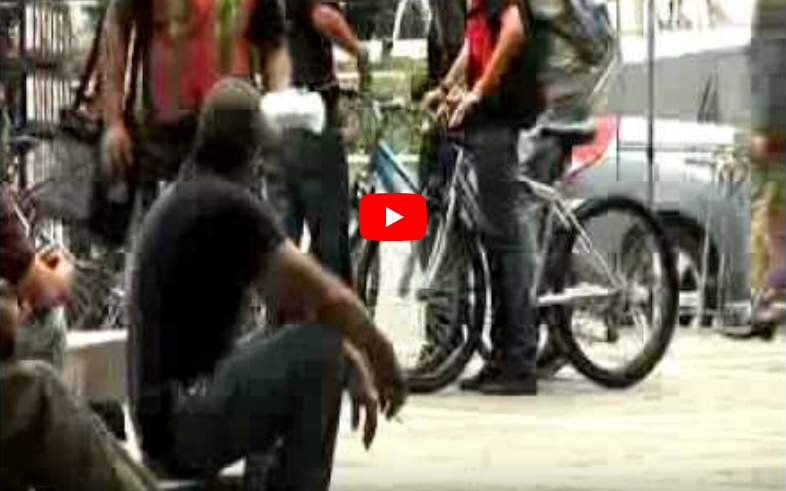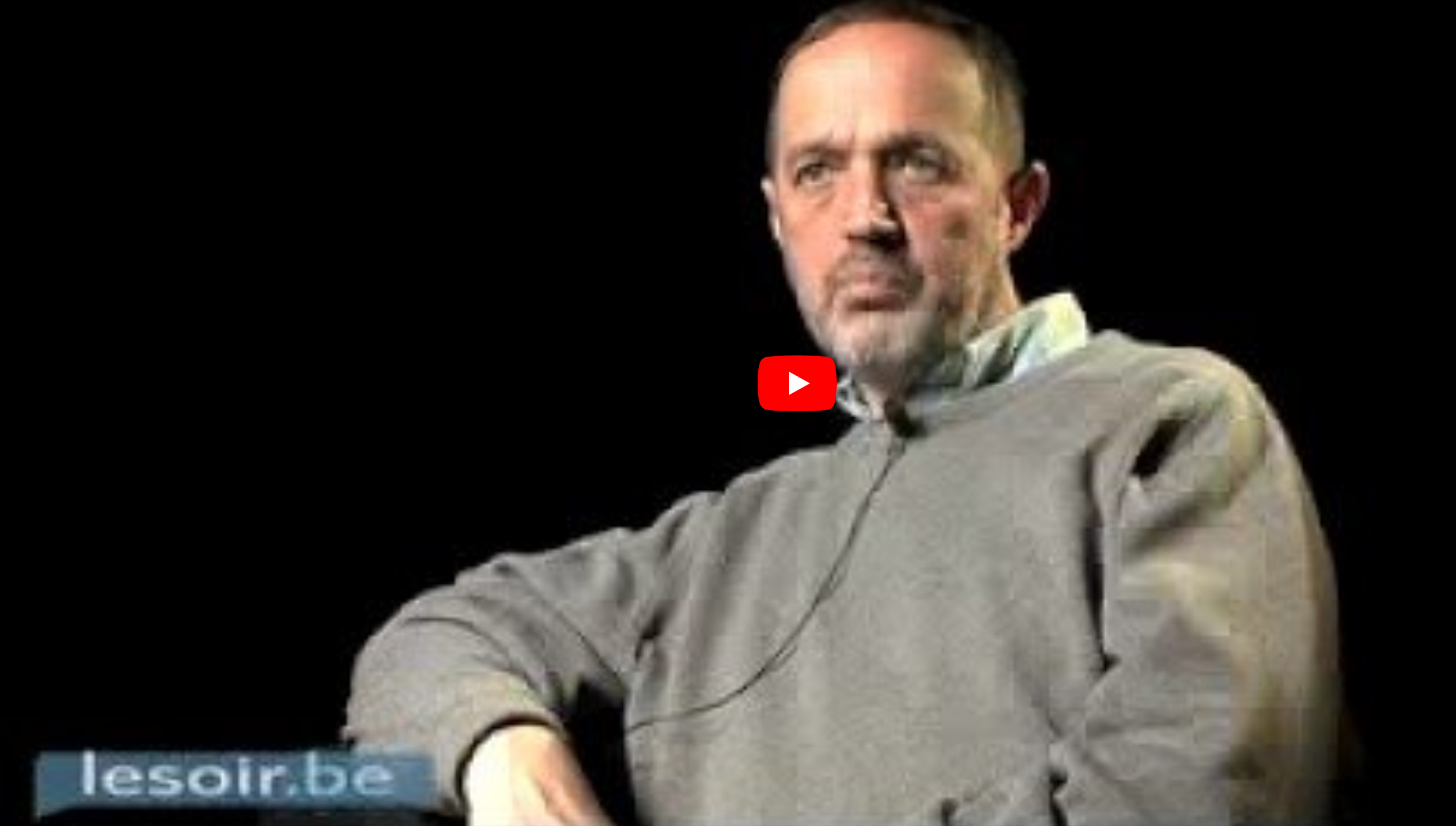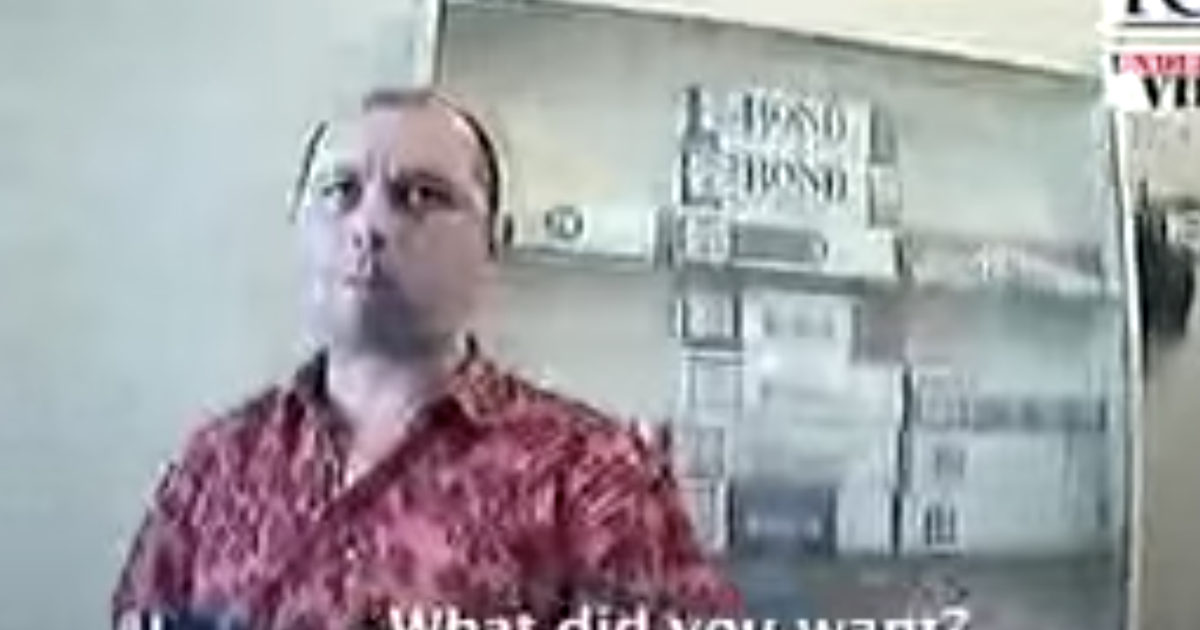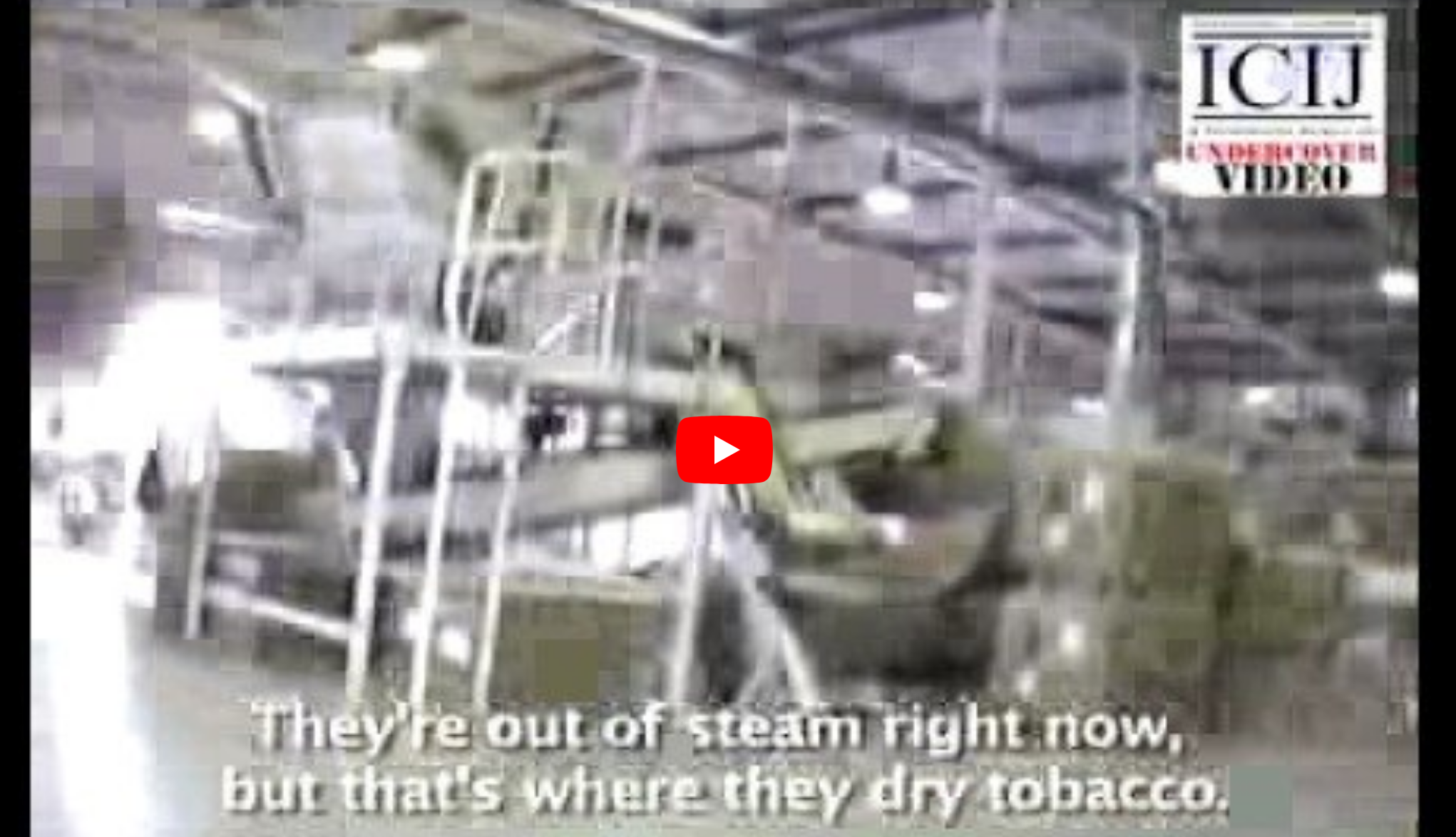The downstairs study was in shambles that morning, but the maid denied she’d been anywhere inside. A line of footprints muddied the wall surrounding the yard; still, as he stared groggily at the scene, Carl Risheim had trouble comprehending it.
To be sure, as a former law enforcement trainer in Colombia, Risheim had seen his share of personal danger. But since moving his wife and three children to Panama to start work on anti-counterfeiting for Philip Morris International, a top multinational, he thought they would be safe.
“You just never think something like that would happen,” Risheim says. “We’re talking about counterfeit [cigarettes] here.”
It was winter 2003, and Risheim was Philip Morris’s newly appointed brand integrity manager for the region. He’d been on the job just six months, but already seizures of counterfeit Marlboros had spiked. Local smugglers were taking notice, too. Late one night, a group of them approached the Risheims’ home and slipped a nozzle into the air conditioning unit. Clouds of anesthetic swelled within; the Risheims sank into a stupor. The thugs picked the locks and crept inside his home.
Risheim says his family was lucky to have woken up at all. “The [anesthesia] could have killed us,” he says. He didn’t quit, but in the days to come, he took no chances. He moved his family into another neighborhood, and Philip Morris dispatched 24-hour security to protect them.
$200 billion of counterfeits
Since the 1990s, trafficking in counterfeit goods has become a windfall for some of the world’s top organized crime and terrorist groups. In New Jersey, Italy’s Camorra reaps profits off fake electronics, while in Afghanistan, the Taliban exact a surcharge on smuggled shipments of counterfeit cigarettes. Today, counterfeit products — from toothpaste to brake pads — surface in virtually every corner of the globe, with sales clocking in at an estimated $200 billion per year, according to the Organization for Economic Co-operation and Development.
And with many countries where products are manufactured — such as China or India — unable or unwilling to quell the deluge, often it’s private investigators like Risheim who end up on the front lines. Today, at least 25,000 of them are stationed around the world, fighting counterfeiters in countries from Romania to Uruguay, according to the National Intellectual Property Law Institute’s James Chandler. From fly-by-night operations in China to boutique outfits set up by retired FBI agents, the number of investigators in the field has jumped fourfold since 1995, Chandler says.
Hired as in-house employees by companies, or independent outside contractors, investigators conduct surveillance, collect evidence, and even assist with raids in dozens of nations. They can’t make arrests, but otherwise act as a private police force — that is, one operating on foreign soil, and at the behest of multinational corporations from Colgate to Nike to Louis Vuitton.
The Levinson case and other dangers
Despite the size of the counterfeit industry, the investigative profession has kept a low profile. Which, given the proprietary information involved, is the way that companies like it. Particularly when it comes to fake cigarettes, one of the most lucrative counterfeit items around, investigations can be perilous: a murky world of dubious informants, counter-surveillance, and occasional death threats.
In one particularly chilling case, an investigator in Fujian Province, China, had his arm macheted off by local cigarette counterfeiters. In Ukraine, just prior to the 2005 Orange Revolution, one operative working for a multinational tobacco company was arrested on charges of espionage, and thrown into jail for days. In northern Bolivia, another local cigarette investigator was awakened at 3 a.m. by a staccato knock, and a man delivering a death threat.
The public got a rare window into the risks in March 2007, when the case of Robert Levinson, a former FBI agent turned private investigator, made headlines. Levinson — a 61-year-old father of seven from Coral Springs, Fla. — disappeared on a trip to Kish Island, Iran, where he was investigating cigarette smuggling in the region, according to his wife.
Little is known about Levinson’s specific plans on Kish Island, a free trade zone notorious as a hotbed for smuggling into the Middle East. Before heading to Kish, though, Levinson had stopped en route in Dubai as part of an assignment for the London-based advocacy group, Global Witness, and e-mail records obtained by ICIJ show he also hoped to meet with another Dubai-based trader — Ahmed Barakat, who worked as a consultant for Philip Morris International from 2001 to 2007. Barakat declined to respond to questions from ICIJ.
Since checking out of his hotel the next day on Kish Island, a half-hour plane flight away from Dubai, Levinson has not been publicly heard from, and Iranian authorities deny any knowledge of his whereabouts.
But while Levinson’s story lies on the more dramatic side of the register, he’s hardly alone in the field — or in facing the risks involved.
An explosion of investigators
Back in the 1980s, when the counterfeit tobacco trade was starting to explode out of Taiwan and South Korea, well-established companies like Kroll and Pinkerton dominated the investigative trade. Since the 1990s, though, a fresh wave of retiring U.S. federal agents — part of an expansion of law enforcement under President Nixon — has challenged their supremacy, with many now working either as in-house brand integrity managers or as independent, private contractors.
These days, as well, there are any numbers of overseas operators enlisting in the business. In Guangzhou, China — a country that leads the world in counterfeit goods, accounting for up to eight percent of its GDP — some 80 firms are working as contractors for outside corporations. Though brand owners are close-mouthed about how much they’re spending to stop the counterfeit scourge, to take just the tobacco industry as an example, companies like Philip Morris and British American Tobacco work with dozens of investigators and informants around the world.
Of course, getting police in the developing world to see major multinational companies as victims — and to take action — isn’t easy. “Look at a country like Colombia, who’s fighting a civil war on the side, and drug lords,” says Risheim. “You tell them, ‘We’ve got a problem,’ and what’s the response? ‘Get in line!’”
Controversial ties to police
In many countries, building relationships with law enforcement means contributing funds, storage space, and equipment such as infrared readers or night-vision goggles. Some industries, like tobacco companies, go still farther, signing cooperative agreements with local customs agencies that — in the case of Uruguay, for example — pledge that local police will coordinate any media releases related to activities along with the affected company.
Given the tobacco industry’s history of complicity in smuggling, anti-smoking advocates worry that these relationships jeopardize law enforcement’s ability to stay vigilant against any such corporate malfeasance. “Some of the major tobacco manufacturers have distracted or compromised domestic and international law enforcement efforts, and few agencies are really taking an independent look at what’s going on,” says John Colledge, who oversaw international tobacco smuggling programs at the U.S. Customs Service between 1999 and 2002.
But without such overtures, says Daniel Chow, an Ohio State University law professor and former tobacco industry consultant, local authorities are rarely responsive. In China, he says, investigators have to bring authorities cases “essentially gift-wrapped.” Says Chow, “You have to tell them, ‘Here’s the warehouse, here’s the factory, here’s the evidence.’”

To build his cases, Ted Kavowras — a former New York City cop and 15-year veteran of the field — starts by conducting undercover surveillance and test buys in markets throughout China. He and his colleagues at Panoramic Consulting employ a California-based make-up artist to keep their identities shrouded, with the aid of multiple facial prosthetics, beards, and wigs.
“We pretend to be big buyers,” says Kavowras, who met his wife while monitoring a neighbor’s sales front in Beijing, “and ultimately, they believe us.” (For the first year of their courtship, his wife-to-be thought he was a high-rolling trader from Dubai.)
But while getting the evidence is one thing, persuading authorities to act is another. In South America, investigators in the tobacco industry admit that on occasion they lie to local police, telling them that certain warehouses contain drugs — not just counterfeit cigarettes — because they know police are more likely to raid those that contain the former. In China, cajoling authorities to act often means cultivating them with overtime fees, equipment, or contributions to a local police retirement fund. Such payments, if properly documented, are legal under the Foreign Corrupt Practices Act, and investigators insist they’re necessary to getting any traction on their cases.
“Every time we went to the Public Security Bureau, they’d ask for money to open up a case, or make an arrest,” says Chow. “They were notorious for that.” The average fee per arrest, he adds, was a hefty $7,000.
Death threats and dirty tricks
In Eastern Europe, an American who handled cigarette investigations in Latvia recounts how the police frequently wiretapped his office to keep tabs on his activities. “Cigarette counterfeiting would always go up during election time, for campaign money, so everyone would be watching us,” he says. The counterfeiters would tap his office phones, too, as would other consultants receiving commissions from the investigations industry. At one point, the investigator says, he received a death threat from a Russian general allied with a Latvian investigations company, who felt that the American was stealing their business.
“Sometimes your worst enemies are not the counterfeiters but the people you work with,” he says.

In China, source of two-thirds of the world’s counterfeit goods, the private investigations field is particularly notorious for corruption. Numerous Chinese fronts acting as investigators are fly-by-night operations: “cockroach companies” with little or no scruples, as one Western investigator describes them. With no regulation or licensing, there are currently some 1,000 China-based brokers vying for fees from multinationals, estimates Keith Tsang of the China Association of Industry Security Professionals (CAISP). Some are composed of former members of the Chinese enforcement agencies, others just enterprising youth looking for a buck.
Local companies, of course, are cheaper to retain than big-name Western outfits (which subcontract out much of their work to such firms anyway). A successful raid might cost $1,800, with bonuses for additional seized products, and another $7,300 commission if followed by a criminal conviction. But on the flip side, it’s very hard for companies to know what’s happening on the ground.
Investigative companies looking to fleece multinationals use any number of stand-by tricks. Pawning off recycled photos of old counterfeit seizures as evidence in new cases is a favorite. (In one case, a Chinese company went so far as to film a faux-raid as evidence of a counterfeit sting operation.) Crooked investigators are known to tamper with police lists of seized goods, as well; one easy ruse is to add an extra digit on the number of seized goods: 109 quickly becomes 1,090, for example. Some companies have even been known to place orders with counterfeiting factories before launching raids, to increase the number of products seized (and in turn, their commission).
Investigators also sometimes extort bribes from the counterfeiters — in cooperation with the police, according to Daniel Plane, in-house intellectual property counsel at Gide Loyrette Nouel’s law offices in Hong Kong. “During a raid, the investigator says, ‘Pay us 40,000 RMB [almost $6,000], and we’ll tell the brand owner that everything got shipped out the night before the raid,’” he says. “The brand owner never knows, and the investigator and cop split the fee.” Plane says he’s even heard of cases in which counterfeiters gain contract work as investigators, and use their position to raid the factories of their competitors.
“Frankly, a lot of [brand owners] have their heads in the sand about what’s actually going on here,” Plane says.

Few companies are immune to the seedy side of the business. A number of years ago, unbeknownst to cigarette companies that had hired a well-known Western firm to conduct anti-counterfeit work in China, a local manager for that firm had developed close ties to the official State Tobacco Monopoly Administration, which itself is charged with investigating counterfeit cigarettes. Through that manager, the STMA would pass tips to the investigative firm, which in turn would charge its clients to investigate the information — neatly outsourcing its own work on the tobacco companies’ dime.
To keep his own investigators honest, Kavowras’s team of 30 covertly records all interactions with their targets. “I believe them, and I trust them,” Kavowras says. “But I trust them a lot more when I have it on tape.”
“It’s a real double-edged sword,” Plane adds. While investigations in China can be done cheaply, he says, “a bribe might be paid in your name, and after a raid, your investigators might be buying the police prostitutes. … You just don’t know.”
The high stakes and stress contribute to high levels of burnout in the business. For some, the risks are simply too high, and the profits aren’t there. Take, for example, the undercover informants that companies hire to investigate suspected factories, who pose as workers for months on end. For such informants — who in Fujian, China, earn as little as $5 a day — the task is “very dangerous” as well as poorly paid, according to a Xiamen-based lawyer whose firm contracts with such laborers. “If the factory finds out who they work for, they’ll be badly beaten,” he says.
Mario Loaiza, whose company conducts investigations in Latin America for several large brand owners, says he knows it’s a dangerous game. “We’re talking about organized crime here, big business, in some cases just as profitable as selling drugs,” says Loaiza, a former criminal investigator with the U.S. Department of Defense. But when it comes to his 17 investigators, he explains that he does what he can to keep them safe — for one, by never asking them to do something he wouldn’t be willing to do himself.
“I tell them, it’s just a damn pack of cigarettes,” Loaiza says. “It’s just a pair of jeans. … Your life is more important than that.”
Te-Ping Chen is a staff writer for the International Consortium of Investigative Journalists.




